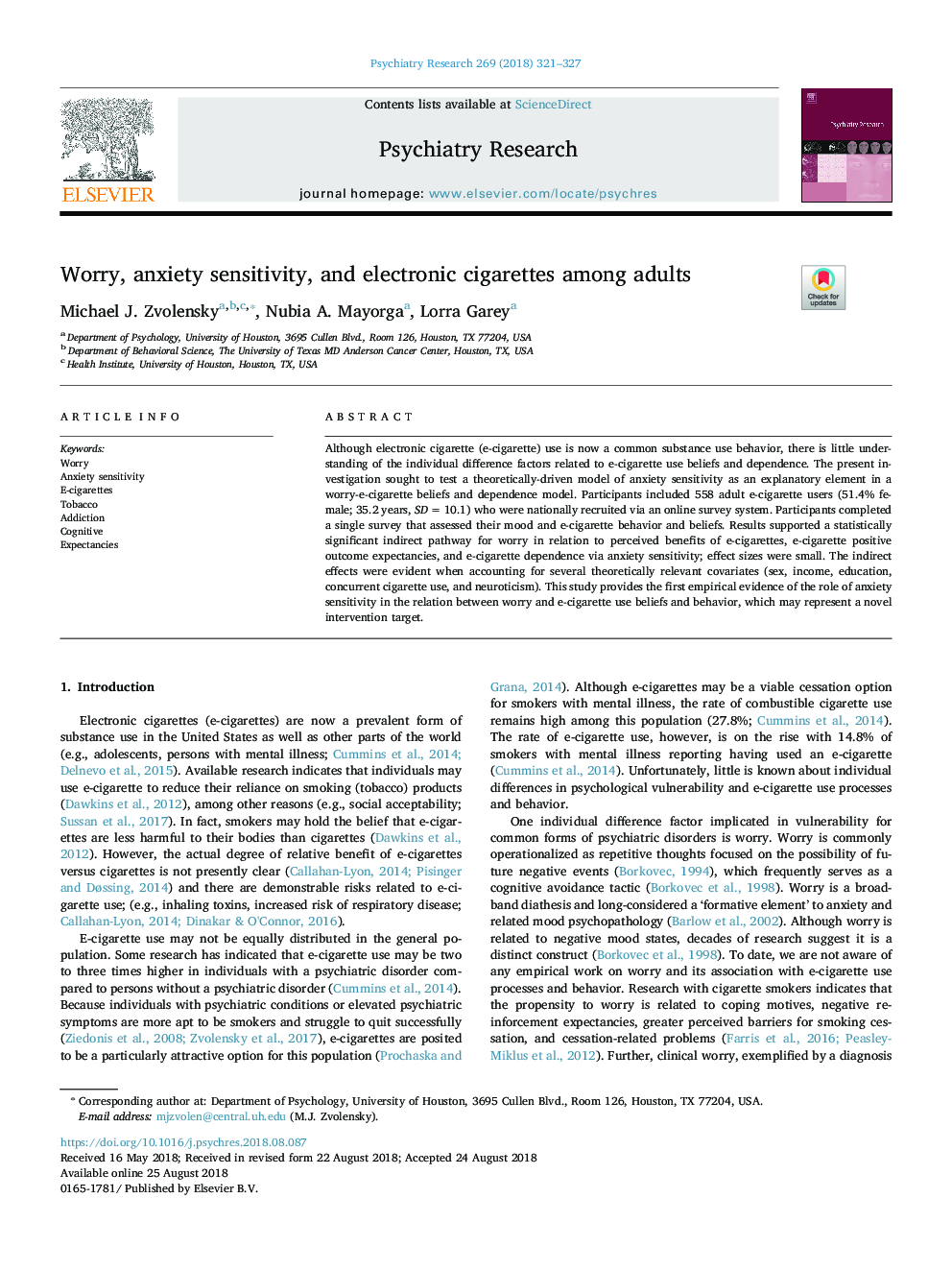| Article ID | Journal | Published Year | Pages | File Type |
|---|---|---|---|---|
| 10132293 | Psychiatry Research | 2018 | 7 Pages |
Abstract
Although electronic cigarette (e-cigarette) use is now a common substance use behavior, there is little understanding of the individual difference factors related to e-cigarette use beliefs and dependence. The present investigation sought to test a theoretically-driven model of anxiety sensitivity as an explanatory element in a worry-e-cigarette beliefs and dependence model. Participants included 558 adult e-cigarette users (51.4% female; 35.2 years, SDâ¯=â¯10.1) who were nationally recruited via an online survey system. Participants completed a single survey that assessed their mood and e-cigarette behavior and beliefs. Results supported a statistically significant indirect pathway for worry in relation to perceived benefits of e-cigarettes, e-cigarette positive outcome expectancies, and e-cigarette dependence via anxiety sensitivity; effect sizes were small. The indirect effects were evident when accounting for several theoretically relevant covariates (sex, income, education, concurrent cigarette use, and neuroticism). This study provides the first empirical evidence of the role of anxiety sensitivity in the relation between worry and e-cigarette use beliefs and behavior, which may represent a novel intervention target.
Related Topics
Life Sciences
Neuroscience
Biological Psychiatry
Authors
Michael J. Zvolensky, Nubia A. Mayorga, Lorra Garey,
